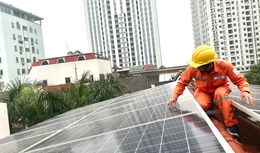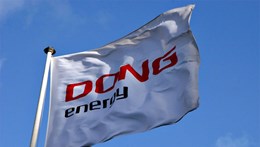-

Energy efficiency is vital for global sustainability, and India is embracing it to meet rising energy demands. With scalable solutions and renewable integration, the nation is advancing toward a greener future. Delta Electronics supports this vision through innovative technologies and sustainable initiatives.
-

A new commentary, published by members of the Energy Demand Changes Induced by Technological and Social Innovations (EDITS) network, coordinated by IIASA, highlights that switching the focus from how energy is supplied to how energy is consumed can be a more effective approach to reducing carbon emissions with the added benefit of improving wellbeing for all.
-

Energy demand – how much energy we use – is a surprisingly under-explored area in the drive to cut carbon emissions and fight the climate crisis. But for energy users who take action in this area, there is “extraordinary potential,” the World Economic Forum says.
-

Energy costs are a hot topic for fish processing plants, who can potentially spend a lot of electricity to maintain optimal climates at all times. Below, we explain how Dantherm’s ECOline solution is significantly reducing the energy demands of climate control in this industry.
-

Aware of the demand for green energy, industrial parks have retrofitted rooftop solar power systems to increase competitiveness and attract investors.
-

The problem is only going to grow as high-powered AI-based computers and devices become commonplace. That's why University of Missouri researcher Chanwoo Park is devising a new type of cooling system that promises to dramatically reduce energy demands.
-

In the context of rapidly increasing energy demand, Vietnam has accelerated the transition to green and clean energy, gradually reducing fossil energy... in order to develop sustainable energy. This has actively supported the supply of power sources, especially in the recent time in the Northern region when there is a shortage of power sources and high loads, contributing to ensuring electricity supply for the whole period of 2021-2025.
-

Wind energy provider DONG Energy has launched a new scheme that offers commercial customers financial rewards for turning down their consumption or increasing onsite generation when the wind isn't blowing.
-

Global energy demand will increase by 25% by 2040.
-

In the afternoon of Oct. 23, 2015, Deputy Prime Minister Hoang Trung Hai chaired the steering meeting to set up a mechanism to support the development of solar power projects to ensure prioritized objectives in new and renewable energy sources to meet the energy demands of the country.
-

Solar panels (40 pieces) were installed at the school, capable of providing about 30kWh of electricity per day, to meet the essential energy demands for running the essential equipment of the school activities.
-

Nearly 40 % of energy consumption in the EU goes to heating, cooling and lighting buildings. Their energy demands account for large amounts of carbon dioxide emissions.
-

Energy demand and utility costs in laboratory buildings are very high — they can require 5-10 times more energy per square foot than a typical commercial office building.
-

The United Nations Environment Programme (UNEP) has launched a new initiative to accelerate the transition to more efficient appliances and equipment to reduce global energy demand, mitigate climate change and improve access to energy.
-

Scientists at Stanford University established that installing new solar and wind farms in order to meet the increasing energy demands in the U.S.
-

The United Arab Emirates (UAE) is one of the most technologically advanced and oil rich countries in the Middle East; however, oil is not enough to meet the country’s expected energy demand in coming decades. In preparation, the UAE is following suit with neighboring Saudi Arabia and pursuing a nuclear power program of their own, with Australia as yellow cake uranium supplier of choice.
-

On November 19th, the Ministry of Industry and Trade, with the assistance of German Government through the Organization of German Technical Cooperation (GTZ) and the German Energy Agency, put into use the grid connected solar system on the rooftop of the headquarters. The system will save approximately VND 12 million per year for electricity. Using electricity from renewable energy sources is considered the radical solution for the increasing energy demand in Vietnam.

















 Energy Efficiency and Conservation: Technology as the “Key”
Energy Efficiency and Conservation: Technology as the “Key”
 Energy-saving solutions and green transition promotion
Energy-saving solutions and green transition promotion
 Opening of the 2025 Energy-Efficient Equipment and Green Transition Exhibition Fair
Opening of the 2025 Energy-Efficient Equipment and Green Transition Exhibition Fair
 Consultation on the methodology for developing and updating energy consumption standards for four major industrial sectors
Consultation on the methodology for developing and updating energy consumption standards for four major industrial sectors
 Develop sales and marketing strategies for energy efficiency equipment and solution suppliers
Develop sales and marketing strategies for energy efficiency equipment and solution suppliers
 The 9th VEPG Steering Committee Meeting: Strengthening Coordination for Viet Nam’s Just Energy Transition
The 9th VEPG Steering Committee Meeting: Strengthening Coordination for Viet Nam’s Just Energy Transition